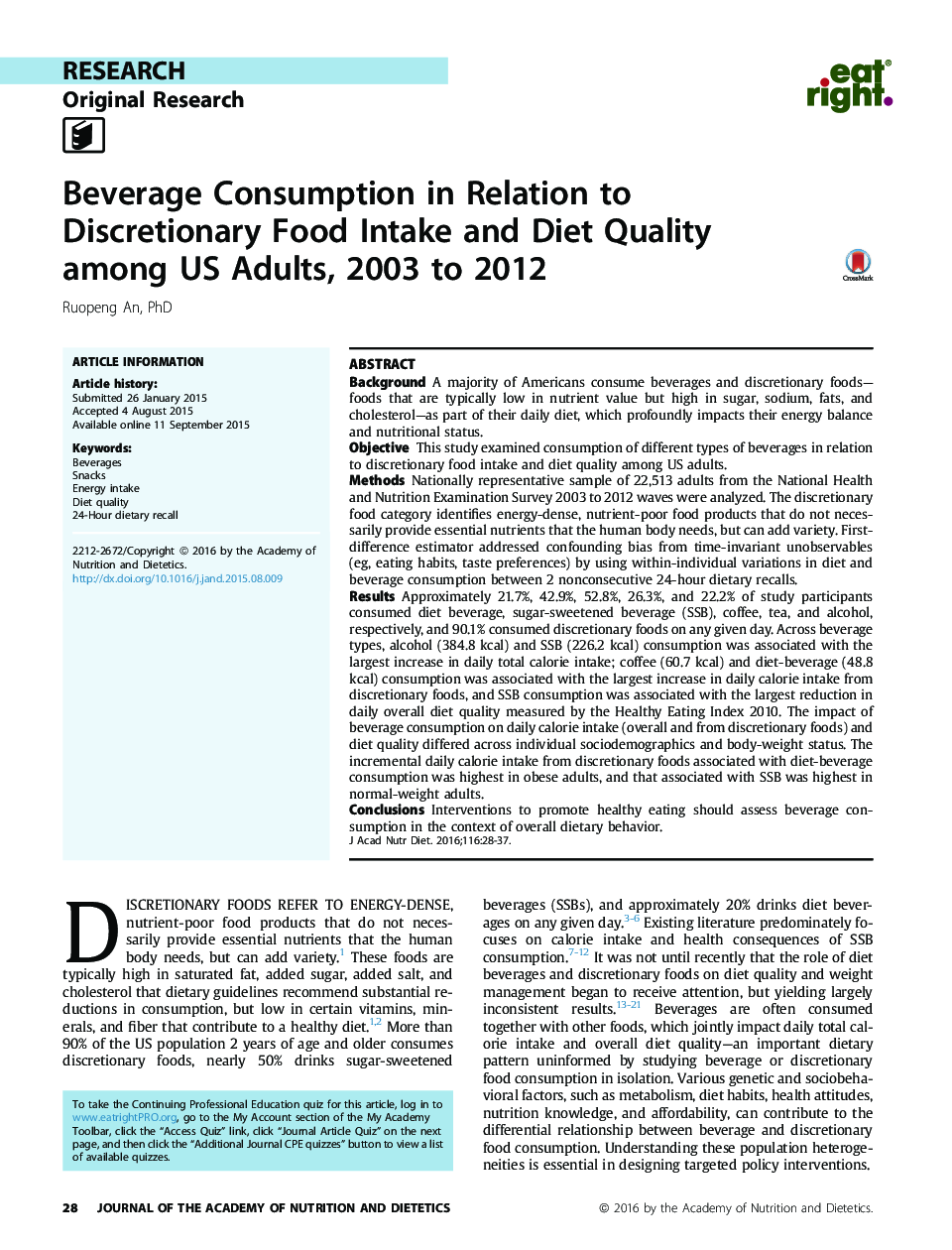| کد مقاله | کد نشریه | سال انتشار | مقاله انگلیسی | نسخه تمام متن |
|---|---|---|---|---|
| 2656473 | 1645501 | 2016 | 10 صفحه PDF | دانلود رایگان |
BackgroundA majority of Americans consume beverages and discretionary foods—foods that are typically low in nutrient value but high in sugar, sodium, fats, and cholesterol—as part of their daily diet, which profoundly impacts their energy balance and nutritional status.ObjectiveThis study examined consumption of different types of beverages in relation to discretionary food intake and diet quality among US adults.MethodsNationally representative sample of 22,513 adults from the National Health and Nutrition Examination Survey 2003 to 2012 waves were analyzed. The discretionary food category identifies energy-dense, nutrient-poor food products that do not necessarily provide essential nutrients that the human body needs, but can add variety. First-difference estimator addressed confounding bias from time-invariant unobservables (eg, eating habits, taste preferences) by using within-individual variations in diet and beverage consumption between 2 nonconsecutive 24-hour dietary recalls.ResultsApproximately 21.7%, 42.9%, 52.8%, 26.3%, and 22.2% of study participants consumed diet beverage, sugar-sweetened beverage (SSB), coffee, tea, and alcohol, respectively, and 90.1% consumed discretionary foods on any given day. Across beverage types, alcohol (384.8 kcal) and SSB (226.2 kcal) consumption was associated with the largest increase in daily total calorie intake; coffee (60.7 kcal) and diet-beverage (48.8 kcal) consumption was associated with the largest increase in daily calorie intake from discretionary foods, and SSB consumption was associated with the largest reduction in daily overall diet quality measured by the Healthy Eating Index 2010. The impact of beverage consumption on daily calorie intake (overall and from discretionary foods) and diet quality differed across individual sociodemographics and body-weight status. The incremental daily calorie intake from discretionary foods associated with diet-beverage consumption was highest in obese adults, and that associated with SSB was highest in normal-weight adults.ConclusionsInterventions to promote healthy eating should assess beverage consumption in the context of overall dietary behavior.
Journal: Journal of the Academy of Nutrition and Dietetics - Volume 116, Issue 1, January 2016, Pages 28–37
